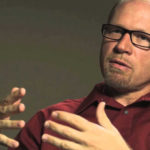We run our website the way we wished the whole internet worked: we provide high quality original content with no ads. We are funded solely by your direct support. Please consider supporting this project.
What God Doesn’t Know (According to W.L.Craig)
Hello bloggers. Here’s Part II of my response to Bill Craig’s podcast critique of the open model of providence.
As I see it, the central difference between Craig’s position (Molinism) and my own (open theism) boils down to our different assessments of futurity. As I noted in my previous blog, Craig believes that propositions asserting what “will” and what “will not” come to pass exhaust the field of meaningful propositions that accurately describe future state of affairs. God therefore knows the future exclusively in terms of what will and will not come to pass. Hence, though Craig affirms libertarian free will, just as I do, he believes that all facts pertaining to the future are exhaustively and eternally settled. In his view, for example, John is free to marry Sue or not, even though it is eternally settled (and therefore eternally known to God) that John will or will not marry Sue.
By contrast, while I grant that much of the future is describable in terms of what “will” and “will not” come to pass, I am convinced that propositions asserting what “might and might not” come to pass also have a truth value that an omniscient God must know. Over and against Bill’s position, I do not believe the truth value of “might and might not” propositions is entailed by the truth value of corresponding propositions asserting what “will” and “will not” come to pass, as discussed in my previous blog. So, for example, in my view, if God knows it is true that “John might and might not marry Sue,” then God knows it’s false that “John will marry Sue” (for he might not) and false that “John will not marry Sue” (for he might).
In light of this, I hope it is clear that I do not deny that propositions about future contingents “have no truth value,” as Bill alleges. Similarly, I hope it is clear that I do not deny bivalence, as he contends.
In any case, our different understandings of futurity produce different understandings of the content of God’s pre-creational knowledge. As a Molinist, Bill believes that, prior to creation, God not only knew the truth value of propositions asserting what “will” and “will not” come to pass in the actual (future) world, but also the truth value of propositions asserting what “will” and “will not” come to pass if any other alternative world is actualized (which is to say, God knows what “would” and “would not” have come to pass had God actualized any world other than the one he in fact actualized). I do not disagree with this view, so far as it goes. I simply think it’s incomplete because (you guessed it!) for at least some logically possible worlds (including the one we live in, in my opinion) there are propositions asserting what “might and might not” come to pass that are true, and God, being omniscient, must of course know these truths. More specifically, I argue that, insofar as any logically possible world (including our own) contains morally responsible free agents, propositions asserting what these agents “might and might not” do are true. Hence, propositions asserting that these same agents “will” or “will not” do these same behaviors are false.
Such are our differences. But things begin to get very interesting when Craig points out (correctly) that I hold that God has “middle knowledge” of his own actions. That is, while I deny the Molinist view that God knows how created free agents will or will not certainly choose to freely act in the future (or in other logically possible futures), I see no reason to deny that God knows how he will act in response to every conceivable choice future free agents may make (or could have made in other logically possible futures). For this reason, I argue, we can be assured that God has an eternally prepared response to every possible free choice that agents might make throughout history, which is why I contend that the open view of the future offers as much providential assurance as does Molinism. Whatever comes to pass, God has been preparing for it from all eternity, as though it had to take place.
To my surprise, Bill argued that my understanding of God’s middle knowledge undermines divine freedom. While God knows the truth value of statements about how free agents would act in every conceivable circumstance, “God doesn’t know the truth of statements about what he would do in any circumstance prior to the divine creative decree.” This, Bill contends, would undermine divine freedom. On these grounds Bill concludes that “Greg’s view is not carefully thought out.”
Perhaps. But Bill’s critique on this point hasn’t done much to convince me. For starters, Craig has spent no small amount of ink over the years arguing against openness thinkers such as William Hasker who modify the concept of omniscience to mean something like, “God knows all truths that are knowable.” In Hasker’s view, propositions about what choices a free agent “will” or “will not” make have a truth value, but it is not knowable. Craig has rather argued that omniscience is not the kind of concept that can be qualified — a view I wholeheartedly subscribe to. By definition, omniscience means that God knows all truths, which means all truths are knowable. Yet, this longstanding and very solid critique makes it all the more surprising to hear Craig say, “God doesn’t know the truth of statements about what he would do…” The statement presupposes that there is a truth to statements about what God would do, but that God can’t know it!
Now, I must immediately acknowledge that the ignorance Craig ascribes to God occurs in a logical, not a temporal, moment in God’s pre-creational knowledge. Still, the meaningfulness of the logical distinction hinges on the meaningfulness of the claim that God does not know the truth of a certain class of statements (namely, about what he will do). And this strikes me as something Bill Craig of all people would want to deny. I would have thought Bill would have held, as I do, that the very concept of a truth being unknown to the omniscient God is a logical contradiction. Yet, if Bill held this, he’d have to regard the statement that “God doesn’t know the truth of statements…” to be self-contradictory and thus inapplicable even for the purpose of distinguishing logical moments in God’s knowledge.
Second, it strikes me as highly peculiar that Craig argues that God’s certain knowledge of his own future actions undermines his freedom while his certain knowledge of the future actions of others doesn’t undermine their freedom. If God’s free will hinges on him not being eternally certain (viz. at least logically prior to all else) as to how he will choose to act, how is this not true of created agents? It seems to me the exact opposite is true. I would never argue that God must decide ahead of time how he will respond to every contingency from all eternity (for all I know, God can leave decisions “up in the air” as long as he wants to). But I do argue that, if he wishes to, God can decide an eternity ahead of time how he will respond to every possible event that may come to pass throughout history. This means God can from the start be putting in place a wise and effective response to every possible event, should it come to pass. Not everything happens for a divine purpose, in the open view, but open theists can affirm that everything happens with a divine purpose.
The reason I hold that God can have eternal knowledge of all possible future actions is because God’s pre-creational decision is grounded in God’s eternal and unchanging character and wisdom. The problem with ascribing this level of eternal certainty to God’s knowledge of the future free actions of others is that there is no such eternal reality to ground it. Think of it this way: Propositions are true when they correspond to reality and false when they do not. So, we must ask, to what reality does the eternal truth of propositions about the future free actions of created agents correspond? Molinists agree that it cannot be the eternal will of God, for this leads to determinism. But it also cannot be the created agents themselves, for the simple reason that they are created, and hence not eternal. (Moreover, in the case of God’s supposed counterfactual knowledge of what agents would freely choose to do in non-actualized logically possible worlds, the agents in question never exist.) So what makes true propositions about what agents “will” and “will not” freely chose to do an eternity before the agents themselves chose it?
The answer is nothing. The facticity of what each and every created agent will ever do simply exists as an unchosen, co-eternal, metaphysical reality alongside God. To some of us, this view borders on dualism as much as it does on fatalism.
In any event, in light of all that’s been said, it seems to me reasonable to grant that God’s knowledge of his own future actions can be, at least theoretically, exhaustively described by propositions asserting what “will” and “will not” come to pass (though often conditioned on what created agents choose), while also holding that God’s eternal knowledge of the future actions of created agents necessarily includes propositions asserting what “might and might not”come to pass.
My thanks to Bill Craig for his fair, critical and energetic engagement with my version of the open view, both in his essay in the forthcoming Four Views of Divine Providence and in his podcast. I have a suspicion (and hope) that this debate will continue on into future.
God certainly knows this might or might not happen. : – )
Category: General
Tags: Open Theism
Related Reading

What is the significance of Jeremiah 36:1-6
The Lord has Jeremiah write his prophecy on a scroll, telling him, “Perhaps when the people of Judah hear about every disaster I plan to inflict on them, they will each turn from their wicked ways; then I will forgive their wickedness and their sin” (Jer. 36:3). Jeremiah then tells his scribe to take the…

Podcast: Is God Outside of Time?
Greg discusses the nature of time, the importance of sequence, and the centrality of poetry. http://traffic.libsyn.com/askgregboyd/Episode_0286.mp3

Why We Can’t Know Why
Various fields of science have taught us that the slightest variation in a sufficiently complex process at one point may cause remarkable variations in that process at another point. The flap of a butterfly wing in one part of the globe can be, under the right conditions, the decisive variable that brings about a hurricane…

Why Can’t God Stop Evil? The Thomas J. Oord Interview (podcast)
Greg and Thomas talk about Open Theism and how Greg’s views differ from Thomas’s. Theology nerds, get your compass and your flashlight and prepare to go DEEEEEP in the weeds! Thomas’s book: God Can’t Episode 487 http://traffic.libsyn.com/askgregboyd/Episode_0487.mp3

What is the significance of Numbers 14:11?
In the light of the Israelites’ relentless complaining the Lord says to Moses, “How long will this people despise me? And how long will they refuse to believe in me, in spite of all the signs that I have done among them?” The fact that the Lord continued, for centuries, to try to get the…

Podcast: Is Open Theism an Accommodation?
Or for that matter is accommodation an accommodation? Greg talks about things that impact God. http://traffic.libsyn.com/askgregboyd/Episode_0407.mp3
